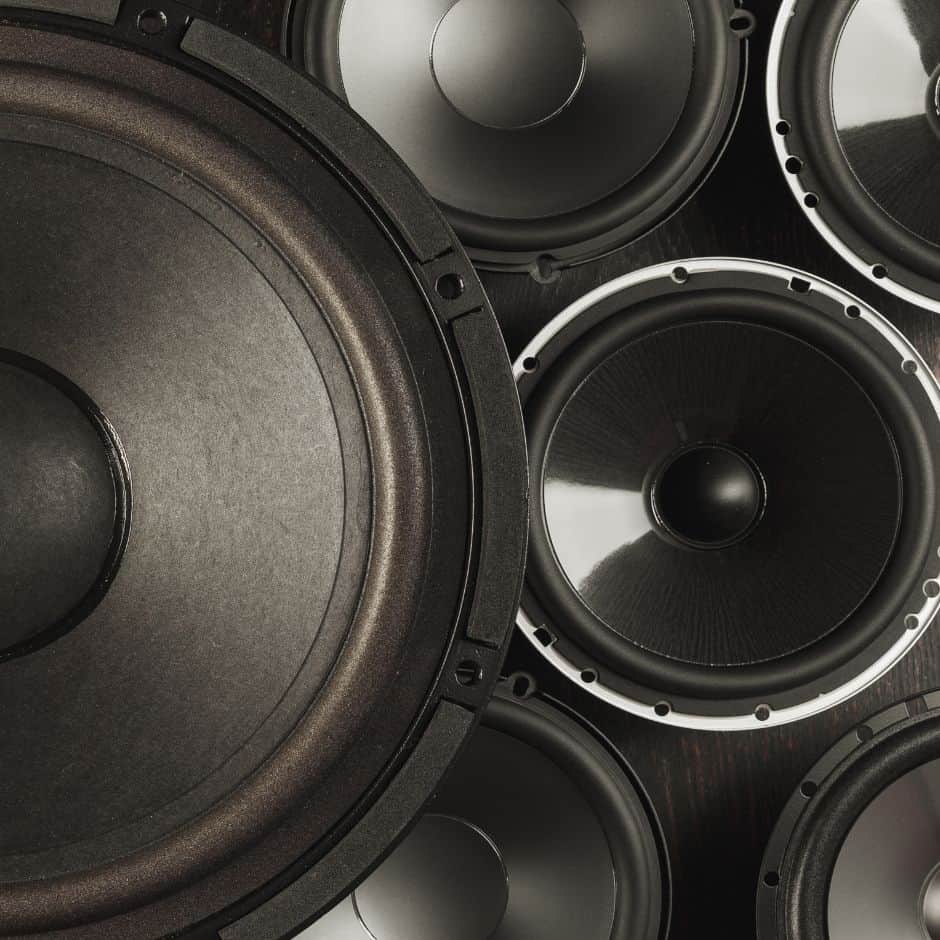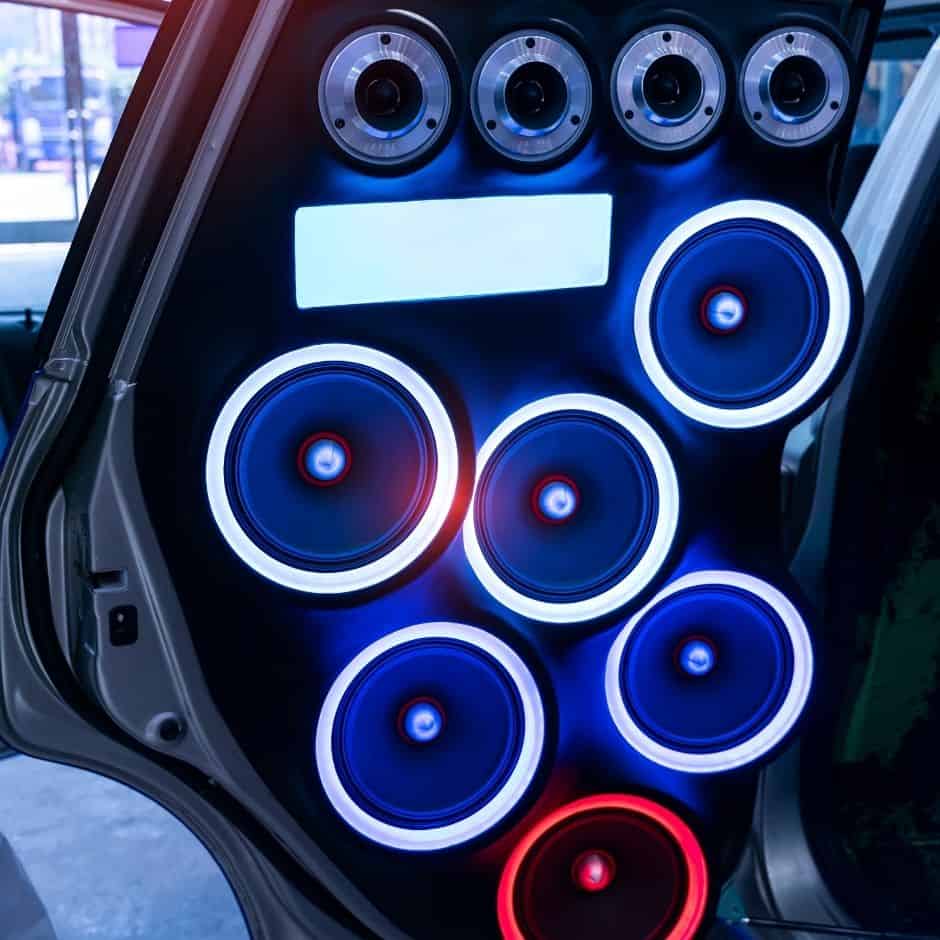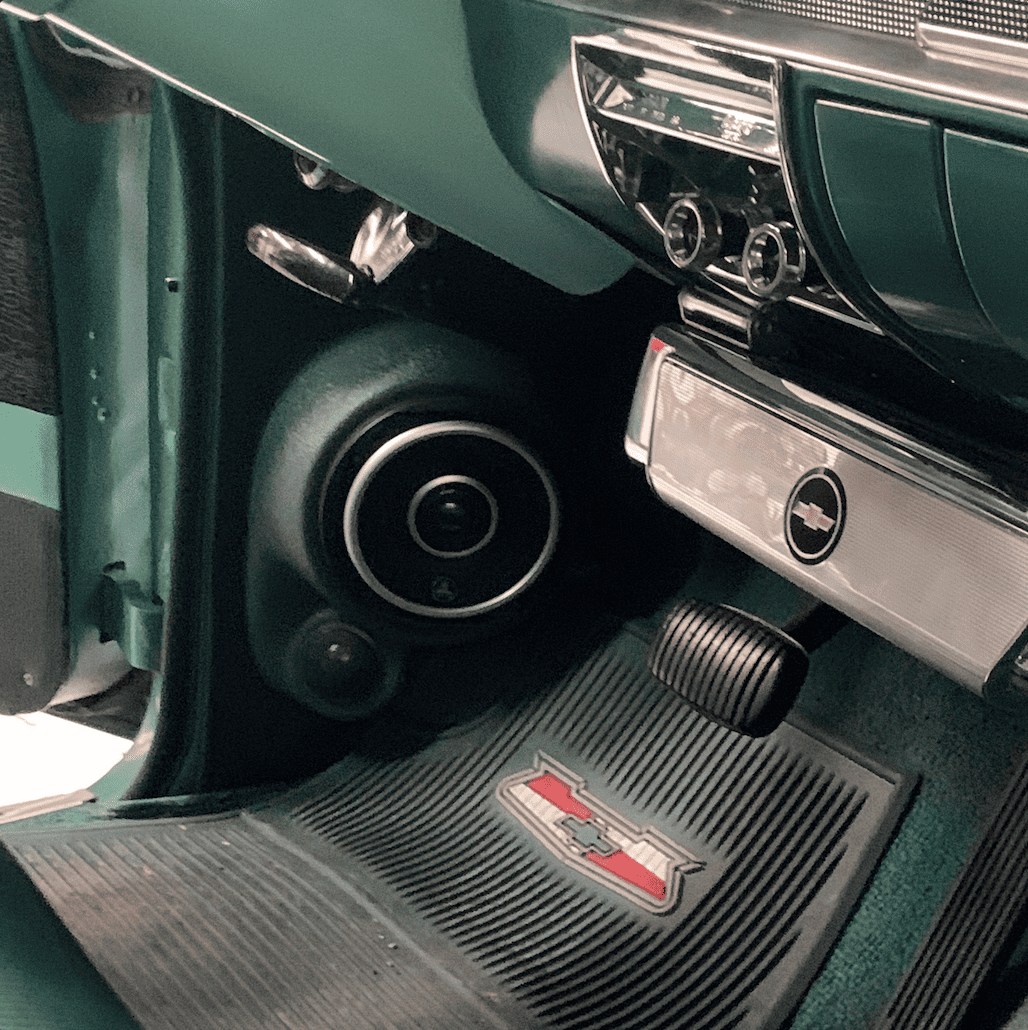How to Choose the Perfect Car Stereo Speakers for Your Vehicle
Your vehicle is your pride and joy. From the sound system to the exterior paint job, every detail is important. As a car owner, you already know the important role that car stereo speakers play in giving you an enjoyable drive. Whether it’s listening to your favorite tunes or enjoying the comfort and convenience of a voice-guided GPS, the quality of your car stereo speakers can make all the difference. With so many options available in the market, choosing the right car stereo speakers for your vehicle can be a daunting task. Read on to learn how you can choose the perfect car stereo speakers that meet your preferences, budget, and car model specifications.
Choosing The Right Speaker Size
When it comes to car stereo systems, there’s often confusion surrounding speaker sizes. Before purchasing car stereo speakers, you need to know the size of the speakers that fit in your car’s audio system. Speaker sizes are measured in inches – this refers to the diameter of the speaker cone. The cone is the part of the speaker that produces sound, and the bigger it is, the more air it can move and therefore produce louder sound.

However, bigger isn’t always better, as a larger speaker may not always fit in your car’s sound system. Speaker sizes and types can differ depending on the car’s make and model, so it’s essential to check your vehicle’s manual for the correct speaker size. Ensure that the speakers you choose fit perfectly into the speaker slots to enjoy optimal sound quality.
Available Car Stereo Speaker Sizes
The most common car speaker sizes are 5.25 inches, 6.5 inches, and 6×9 inches. The 5.25 inch speaker is often used in smaller cars or in situations where there isn’t a lot of room. They tend to be more affordable, but they may not produce the sound quality that larger speakers can. 6.5 inch speakers are a popular choice for mid-sized vehicles. They produce a clear and crisp sound, but may not be as loud as 6×9 inch speakers. 6×9 inch speakers are the largest size and are typically used for larger vehicles like SUVs and trucks. They’re known for producing a deep, rich bass sound, but they may not be as clear sounding as smaller speakers.
Considerations When Choosing Speaker Size
When deciding on the best speaker size for your car, there are several factors to consider. First, you’ll want to check your car’s manual or consult with an expert to see what speaker sizes will fit within your car’s sound system. You’ll also want to consider the type of music you typically listen to. If you’re a fan of bass-heavy music, you may want to opt for a larger speaker. Lastly, think about the overall sound quality you want in your car. Larger speakers may produce a louder sound, but that doesn’t necessarily mean they will have better sound quality. If you’re thinking about upgrading your car’s sound system, replacing your speakers is a great place to start. With the right speaker size and quality, you can enhance your listening experience and impress your passengers. However, it’s important to note that not all cars are created equal, and some may require additional upgrades to fully take advantage of new speakers. You may need to upgrade your car’s head unit or add an amplifier to achieve the best sound quality.

Speaker Power Handling And Sensitivity
Power handling refers to the amount of power a speaker can handle without getting damaged. If you want a louder and clearer sound, you have to choose speakers with higher power handling capacity. However, keep in mind that power handling can vary based on music genre, speaker location, and amplifier power output. So, you don’t have to necessarily opt for the most powerful speakers on the market. Match the power handling of the speakers to the amplifier or head unit ratings. Understanding the difference between peak watts and RMS watts is essential to accomplish this. Below we’ll provide a beginner’s guide to RMS watts and what they mean in the world of car audio.
What Are RMS Watts?
RMS stands for Root Mean Square. It is a mathematical formula used to calculate the average power a speaker or amplifier can handle continuously. Unlike peak watts, which is the highest power output a speaker or amplifier can handle for a short period, RMS watts represent what a speaker can handle for an extended period without causing damage or distortion.
This means that if you use the RMS wattage rating to match your speakers with an amplifier, you can ensure that neither your speakers nor your amplifier will become damaged. Buying a powerful amplifier with a high peak power rating can be tempting, but it’s not always necessary. The RMS rating is a more reliable indicator of the power-handling capabilities of a speaker or amplifier. If you want to achieve the maximum sound quality while preserving the life of your speakers or amplifier, matching the RMS ratings of your speaker and amplifier is the way to go.
What is Peak Power?
Peak power is the highest amount of power output your speaker or amplifier can handle in a short burst. However, unlike RMS, peak power is not an indicator of the power the amplifier should push continuously. Pushing speakers beyond this peak power rating can damage them. Therefore, it’s essential to match the RMS of both the amplifier and speaker to ensure the power output is efficient and sustainable.
Wattage Sensitivity
Sensitivity is another critical factor when choosing car stereo speakers. It’s the measure of how much sound a speaker generates from the power it receives. Higher sensitivity means that a speaker will produce more sound with less power input, making them a great choice if you have low-powered head units or amplifiers. However, bear in mind that increased sensitivity can result in sound distortion at higher volumes.
Choose High-Quality Car Stereo Speakers
Choosing high-quality car stereo speakers is crucial if you want to get the best sound. Cheap speakers can result in inferior audio quality, as they’re not designed to handle the frequencies and volume levels as well as premium speakers. So, invest in high-quality speakers that can handle your music’s bass and treble with ease. An excellent option is to go for speakers produced by popular brands like Pioneer or JBL that are compatible with your car stereo system.
The materials used to construct a speaker have an impact on its sound quality and durability. Most car speakers are either made using paper or polypropylene cones, which are cost-effective, lightweight, and offer high frequencies. Meanwhile, woofers made of composite materials like Kevlar or fiberglass offer better bass frequencies. Tweeters are designed from materials like silk, ceramic, or aluminum, depending on the desired sound quality.
Complete Your Mobile Audio Experience
Install An Amplifier
Amplifiers can significantly improve the sound quality of your car stereo system. The amplifier acts as a power source for your speakers, providing them with the necessary power to play at higher volumes and frequencies. With an amplifier, you can achieve a clearer and more detailed sound, even at higher volumes. Installing an amplifier can be a bit tricky, so it’s best to seek the help of a professional technician for installation.
Use Sound-Deadening Materials
Sound-deadening materials are designed to eliminate or reduce unwanted noise within the car. They can help to improve the sound quality of your car stereo speakers by minimizing external sounds that may hinder your listening experience. You can install sound-deadening materials under the doors, trunk, floor, and roof of your car. This can significantly enhance the overall sound experience, making it more immersive and enjoyable.

Proper Speaker Placement
The placement of car stereo speakers can significantly affect the sound quality. You must place your speakers correctly for optimized frequencies and volume balance. The ideal position for placing speakers is at the front side of the car (aimed directly at the listener’s ears) and at an equal distance. If possible, keep the speakers at ear level for optimal sound clarity.
Frequency Adjustments
Many car stereo systems come with built-in equalizers that allow you to adjust the frequencies for a better listening experience. Experimenting with the frequency equalization can help to enhance your stereo’s general sound quality. You can tweak the settings based on your music taste or genre.
Recommended Brands
Popular audio brands offer unique features that can enhance sound quality, such as 3-way coaxial speakers or separate component systems. Some of our best-selling audio brands include ARC Audio, Dynaudio, Focal, JL Audio, and Kenwood. Check out our featured brands page to learn more about each of these top-of-the-line car audio brands and our project gallery to see some awesome examples of custom car stereo.
Price Range
The price range of car stereo speakers is as varied as the sizes and quality. You’ll want to weigh all your options and choose speakers that suit your budget, style, and the type of vehicle you drive.
At Audio Advice we have Tulsa’s most complete selection of high-quality stereo speakers and have delivered custom audio excellence for over forty years. Let us help you make an informed decision on the right components and design your vehicle’s best sound experience. Stop by our store today for help from our experts or call us with any questions at (918) 664-1933.
